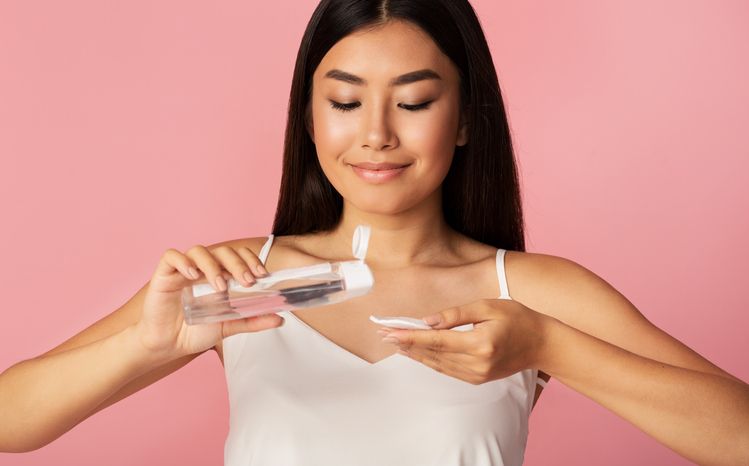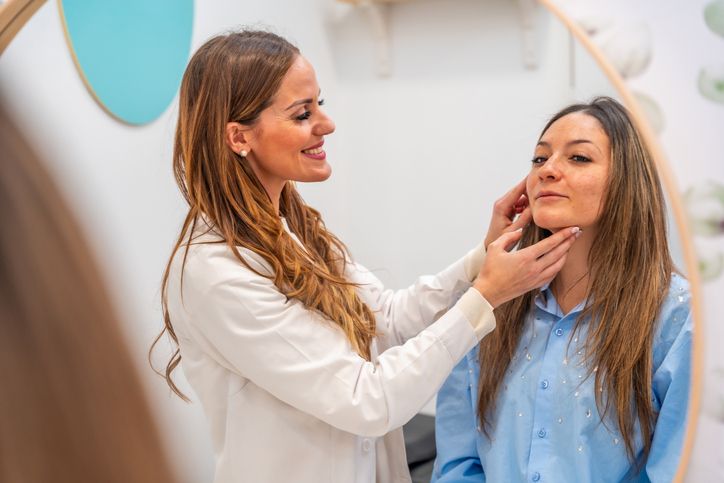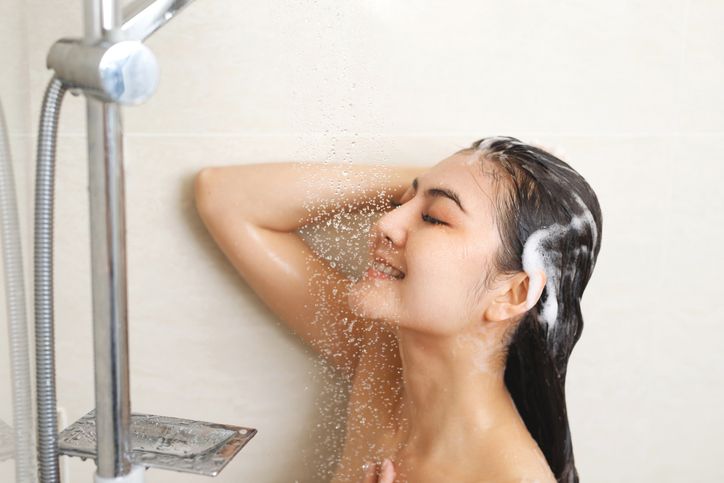
- Home
- Trend
- Weight Loss Strategies
- Acne Tips
- Hair Health Information
- Blemish Removal Tips
- Acne Scar Removal Tips
- Muscle Building Techniques
- Intimate Care Tips
- Postpartum Intimate Care
- Eye Bags Wiki
- Tips for Face Slimming
- Secret of Permanent Hair Removal
- Breast Enlargement Tips
- Cure to Snoring
- Marionette Lines
- Skin-Tightening Secrets
Itchy skin pimples can be frustrating, uncomfortable, and sometimes a sign of an underlying skin condition. Although occasional itchy pimples may not be a cause for concern, persistent pimples that are itchy could indicate an infection, inflammatory acne, or even an allergic reaction.
Is It Just Acne, or Something Else?

Many people assume that all pimples are the same, but not all breakouts stem from clogged pores alone. While traditional acne breakouts occur due to excess sebum, dead skin cells, and bacteria trapped in pores, some itchy skin pimples may be linked to other skin conditions. Understanding the differences can help determine the most appropriate treatment and prevent worsening irritation.
Common Types of Itchy Pimples
Inflammatory Acne
Among all acne types, inflammatory acne—including cystic acne and nodular acne—tends to cause the most redness, swelling, and itchiness. These deeper, painful lesions develop when bacteria inside the pores trigger a severe immune response, leading to inflamed acne.
As cystic acne occurs beneath the skin’s surface, it can feel itchy as the body tries to fight off the infection and begin the healing process. Scratching or picking at already inflamed acne can worsen symptoms, prolong acne scarring, and increase the risk of secondary infection.
Contact Dermatitis
If your itchy pimples seem to appear suddenly after using a new skincare product, detergent, or even a particular fabric, contact dermatitis could be the culprit. This skin condition occurs when the skin reacts to an irritant or allergen, leading to red bumps, itchiness, and inflammation.
Unlike acne breakouts, these itchy bumps often clear up when the irritant is removed. Certain triggers, such as fragrances, preservatives, and even sun exposure, can contribute to this reaction.
Folliculitis
While it may resemble acne, folliculitis is an infection of the hair follicles rather than a buildup of oil and dead skin cells. It occurs when bacteria, fungi, or even ingrown hairs cause small bumps that may be itchy, tender, or filled with pus.
This condition commonly develops in areas of friction, such as the back, chest, or upper arms, especially after shaving or wearing tight clothing. Unlike inflammatory acne, folliculitis may require antibacterial or antifungal treatments rather than traditional acne treatments.
Keratosis Pilaris
Often confused with acne breakouts, keratosis pilaris is a common skin condition that leads to rough, small bumps, typically on the upper arms, thighs, or cheeks. These bumps occur when keratin, a protein in the skin, builds up and blocks hair follicles, causing mild inflammation.
While keratosis pilaris is generally harmless, it can become itchy or worsen with dry skin. Unlike acne, it is not caused by bacteria or clogged pores, and treatments usually focus on exfoliating and hydrating the skin to combat dryness.
Since itchy skin pimples can result from a few different reasons, identifying the exact cause is key to finding the right treatment options. One of the more common ones are - dry skin.
The Connection Between Dry Skin and Itchy Pimples
A compromised skin barrier can make already inflamed acne even itchier and more prone to irritation. While many assume that drying out acne-prone skin will help reduce clogged pores and acne breakouts, the opposite is often true. Dry skin can trigger the skin to produce excessive sebum, leading to further breakouts and increased itchiness.
Why Does Dry Skin Make Acne Itchier?
Loss of the Skin’s Natural Barrier
The skin’s outermost layer serves as a protective barrier, preventing bacteria, environmental factors, and infection from penetrating deeper layers. However, when the skin becomes too dry, this barrier function weakens, making the skin more vulnerable to inflammation and irritation. As a result, itchy acne can worsen, leading to a cycle of discomfort and new pimples forming.
Increased Sensitivity
When the skin is dry and stripped of moisture, it becomes more reactive to irritants, making pimples that are itchy feel even more uncomfortable. Irritated skin is also more likely to develop red patches and small bumps, which may resemble itchy bumps from contact dermatitis or other skin conditions. This heightened sensitivity can make acne-prone areas more prone to swelling, itchiness, and delayed healing.
Overuse of Harsh Cleansers
Some people attempt to dry out acne breakouts by using harsh cleansers, harsh scrubs, or alcohol-based products. However, these aggressive treatments can strip the skin of its natural oils, leading to skin dryness, further weakening the skin barrier, and worsening inflammatory acne. When the skin senses excessive dryness, it compensates by producing more oil, potentially making itchy skin pimples worse.
免費體驗
Acne Treatment
1 Minute Self-Registration
Date should not be before minimal date
How to Combat Dryness and Itchy Pimples?
1. Use Gentle Cleansers
Opt for gentle cleansers that effectively remove excess oil and bacteria without leaving residue or stripping the skin of necessary moisture. Cleansing twice daily with a mild, non-comedogenic formula helps maintain healthy skin without disrupting the skin’s natural barrier.
2. Apply Hyaluronic Acid for Hydration
Hyaluronic acid is a powerful humectant that draws moisture into the skin, helping to combat dryness and restore hydration levels. Applying it to damp skin can improve skin suppleness and create a smoother appearance, reducing the likelihood of itchy acne.
3. Avoid Harsh Scrubs and Over-Exfoliation
While exfoliating can help unclog pores, using harsh scrubs or over-exfoliating can worsen irritated skin and trigger further inflammation. Instead, use mild exfoliants like salicylic acid or benzoyl peroxide in controlled amounts to help treat itchy pimples without damaging the skin.
Keeping the skin hydrated with non-comedogenic moisturizers and avoiding over-drying treatments ensures a healthy skin barrier, reducing itchiness and preventing acne breakouts from worsening. Proper moisture balance is essential to soothing inflamed acne and promoting a faster healing process without additional irritation.
Skincare Products That Help (and Hurt) Itchy Pimples
Choosing the right skincare products can significantly impact the severity and frequency of itchy skin pimples. Some ingredients help soothe irritation and reduce acne breakouts, while others may worsen inflamed acne.
Helpful Ingredients
Aloe Vera – A natural anti-inflammatory that soothes irritated skin, reduces red bumps, and supports the healing process.
Salicylic Acid – A beta hydroxy acid (BHA) that exfoliates dead skin cells, unclogs clogged pores, and helps prevent new pimples from forming.
Benzoyl Peroxide – A powerful antibacterial agent that eliminates bacteria inside pimples, reducing inflammation and preventing future breakouts.
Hyaluronic Acid – Helps combat dryness by restoring moisture to the skin barrier, preventing itchy acne caused by dry skin.
Gentle Cleansers – Maintain skin clean without stripping away natural oils, preventing the skin’s natural barrier from becoming compromised.
Harmful Ingredients
Harsh Cleansers & Scrubs – Over-exfoliating with harsh scrubs or drying cleansers can irritate already inflamed acne, increasing itchiness and sensitivity.
Fragrance & Alcohol-Based Products – Can trigger contact dermatitis, causing itchy bumps that resemble acne but may actually be an allergic reaction.
Heavy or Comedogenic Moisturizers – Thick, greasy formulas can trap oil and clog pores, worsening itchy pimples and leading to acne scarring.
Using appropriate treatment options with skin-friendly ingredients can help manage pimples that are itchy while keeping the skin barrier healthy.
4 Risk Factors That Make Acne More Itchy
Certain factors increase the likelihood of experiencing itchy pimples, making it essential to recognize and avoid potential triggers. By understanding these risk factors, individuals can take proactive steps to prevent acne itch and minimize future breakouts.
1. Sun Exposure
Exposure to UV rays can weaken the skin’s natural defense mechanisms, making it harder for the skin to heal properly. This can lead to prolonged acne scarring, increased sensitivity, and worsening of inflamed acne. Sun exposure also depletes the skin’s moisture, further disrupting the skin’s natural barrier and leading to dry skin, which can exacerbate itchy acne.
Solution
Always apply broad-spectrum sunscreen with SPF 30 or higher to protect the skin from harmful UV rays. Choose oil-free, non-comedogenic sunscreens to avoid clogging pores and worsening large facial pores or acne breakouts.
2. Scratching and Picking at Pimples
It can be tempting to scratch or pick at pimples that are itchy, but this habit can worsen the problem. Scratching irritates already inflamed acne, increasing the risk of bacteria inside pores spreading, which can lead to further infection, red bumps, and acne scarring. Picking at affected areas can also cause small bumps to develop into more severe cystic acne, making the healing process longer and more difficult.
Solution
Keep hands away from inflamed acne to prevent additional irritation. Instead of scratching, apply aloe vera or cool compresses to bring relief to itchy skin pimples.
3. Skincare Products with Harsh Ingredients
Certain skincare products contain strong chemicals, artificial fragrances, or alcohol-based ingredients that strip moisture from the skin. These harsh cleansers can disrupt the skin barrier, leading to irritated skin, red patches, and even contact dermatitis, which can resemble acne. Additionally, some acne treatments, such as benzoyl peroxide, may cause dryness and itchiness if overused.
Solution
Use gentle cleansers that cleanse the skin without leaving residue or causing irritation. Choose fragrance-free, non-comedogenic skincare products that help keep the skin clean without triggering allergic reactions or worsening itchy bumps. Hydrate the skin with hyaluronic acid to combat dryness and strengthen the skin’s natural barrier.
4. Certain Triggers from Diet and Lifestyle
Diet and lifestyle choices can contribute to itchy acne by increasing inflammation and oil production. Dairy, high-glycemic foods, and processed sugars have been linked to inflammatory acne, making pimples more itchy and harder to heal. Additionally, stress raises cortisol levels, which can lead to an increase in excessive sebum production and worsen itchy skin pimples.
Solution
Maintain a healthy skin routine by eating a balanced diet rich in antioxidants, drinking enough water, and getting adequate sleep. Reducing stress levels through activities like yoga or meditation can also help regulate hormonal imbalances that contribute to itchy acne breakouts.
When to See a Dermatologist?

While itchy skin pimples are common, some cases require medical attention. If home remedies and over-the-counter products fail to provide relief, consulting a dermatologist is the best way to prevent worsening symptoms and long-term skin damage.
Signs You Need Professional Treatment
Persistent Red Bumps or Pimples That Are Itchy – If breakouts don’t improve with skincare adjustments or worsen over time, it may indicate an underlying skin condition beyond clogged pores.
Swelling, Rash, or Signs of Infection – If the affected areas become inflamed, painful, or produce pus, this may be a sign of bacterial infection or an allergic reaction, requiring a dermatologist’s office visit.
Severe Acne Scarring or Cystic Acne That Causes Discomfort – Cystic acne can lead to deep, painful breakouts that often leave acne scarring if not treated early. If pimples that are itchy are also large, swollen, and filled with pus, professional intervention is crucial.
A healthcare professional can accurately diagnose whether your itchy bumps are due to inflammatory acne, contact dermatitis, or another skin condition such as keratosis pilaris. This ensures you receive the appropriate treatment rather than using products that may further irritate the already inflamed acne.
免費體驗
Acne Treatment
1 Minute Self-Registration
Date should not be before minimal date
Professional Acne Treatment for Long-Term Relief
If your skin pimples on face are benign but persistent, or if you're tired of trying different acne treatments without success, a professional solution may be the best option. Perfect Medical’s Acne Treatment provides a targeted, non-invasive approach to achieving clear, healthy skin.
Why Choose Perfect Medical’s Acne Treatment?
Deep-Cleanses and Removes Oil – The treatment uses vacuum dermabrasion technology to clear clogged pores, remove excessive sebum, and reduce acne breakouts.
Prevents Acne Scarring – By gently exfoliating dead skin cells, the treatment promotes the healing process and helps prevent inflamed acne from leaving behind long-term acne scars.
Suitable for All Skin Types – Unlike harsh cleansers or harsh scrubs, this treatment is gentle, non-invasive, and safe for sensitive skin while effectively reducing itchy acne and red bumps.
If you’re unsure whether you need a dermatologist’s help or if you simply want an effective way to treat itchy acne and maintain healthy skin, Perfect Medical’s Acne Treatment is a great solution. Book a consultation today to achieve clear, irritation-free skin without the hassle of constant breakouts!
Acne Treatment免費體驗
Acne Treatment
1 Minute Self-Registration
Date should not be before minimal date
FAQ

1. Why does acne itch?
Acne itch occurs when inflammation, bacteria, and clogged pores irritate the skin. This is especially common in inflammatory acne, where the body’s immune response triggers itching as part of the healing process. Additionally, as acne heals, new skin cells form, which may cause temporary itching. Dry skin or the use of harsh acne treatments can also strip the skin’s natural barrier, making acne itch more noticeable.
2. Can an acne rash develop on the body?
Yes, acne rashes can develop on the body, particularly in areas with a high concentration of sebaceous glands, such as the chest, back, and shoulders. These areas are more prone to clogged pores and acne breakouts, especially in hot, humid conditions or when excessive sweating occurs. Factors like friction from tight clothing, excessive oil production, or bacteria buildup can worsen body acne and contribute to persistent acne itch.
3. Is itching a sign that acne is healing?
Not always. While mild itching can indicate that the skin is repairing itself, excessive acne itch may signal irritation, dryness, or an adverse reaction to skincare products. Some acne treatments, like benzoyl peroxide and salicylic acid, can cause dryness and make the skin more sensitive, leading to increased itchiness. If the itching worsens or is accompanied by redness, swelling, or a rash, it may be necessary to modify your skincare routine or consult your dermatologist.
4. What are some common conditions that resemble acne but cause itchy skin?
Several skin conditions can mimic acne but are not actually caused by clogged pores. Contact dermatitis occurs due to allergic reactions from skincare products, fragrances, or fabrics, leading to itchy red bumps. Folliculitis, caused by bacteria or fungi infecting hair follicles, can create pus-filled, acne-like lesions. Keratosis pilaris, often appearing on the upper arms and thighs, consists of small, rough, itchy bumps caused by a buildup of keratin.
5. How can I reduce acne itch and prevent future breakouts?
To minimize acne itch and prevent further breakouts, follow a skincare routine that supports skin health without causing excessive dryness or irritation. Use gentle, non-comedogenic cleansers to remove dirt and oil without stripping the skin’s natural barrier. Incorporate acne-fighting ingredients like salicylic acid to unclog pores or benzoyl peroxide to kill acne-causing bacteria, but ensure you balance them with hydrating ingredients like aloe vera or hyaluronic acid to prevent dryness.








